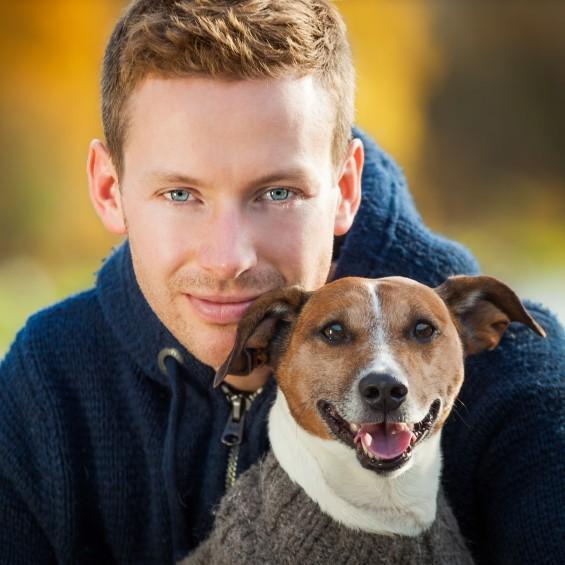Canine Ethology



See files for Dogs
Canine ethology is the branch of behavioral biology that studies the natural behavior of dogs, focusing mainly on instinctive attitudes and actions. An ethologist is a qualified veterinary professional who has expert knowledge of dog behavior, communication and requirements.
It is highly recommended to seek out the advice of this type of specialist if your dog displays severe behavioral problems such as fear, aggression or anxiety. The professional will make a diagnosis and will provide guidelines and tips to improve the dog's quality of life.
Want to know more about canine ethology? Keep reading this AnimalWised:
How you can an ethologist help?
The vast majority of canine behavioral problems are a result of poor education. Lack of puppy socialization or damaging punishment methods such as shock collars, choke collars, or outright aggression can lead to serious conduct problems in your dog, especially as an adult. However, some dogs display obvious social or mental problems that have nothing to do with the way their owner has educated them.
In all these cases, the help of an ethologist is indispensable. An ethologist will be able to give you a diagnosis of what your dog is suffering from, explain the possible causes and provide the necessary treatment plan. The advice and guidelines will of course vary from case to case.
The specialist will carry out their work in person, so do not trust anyone who offers a budget or guidelines before actually meeting your dog. Long-distance support, in this case, is not a possibility.
Types of problems with which ethologists work
It might be hard to admit it, but you might be struggling to communicate satisfactorily with your pet. However, don't beat yourself up about it - many people regularly seek the advice of an ethologist. Your dog might have serious socializing issues that stem from spending time in a shelter or from severe stress problems that are tough to solve.
Some of the problems that ethologists work with include:
- Stereotypies, that is, ritualistic movements or attitudes
- Aggressiveness
- Fear
- Coprophagia, that is, eating their own feces
- Stress
- Separation Anxiety
- Jealousy
- Socialization
- Possessiveness
The specialist will identify the particular causes behind your pet's behavioral issues. With the proper advice, changes to their routine and other factors, you should be able to improve the problem, if not stamp it out altogether.
However, not all ethologists have the solution to your dog's problems, especially if they display very serious conduct issues. This is the case, for instance, if the dog had been used in dog fighting. These more serious cases will take a long time - perhaps years - to treat. Canine psychology is as complex as human psychology, and trauma will have a lasting effect.
With this in mind, we at AnimalWised emphasize the importance of training your dog in a healthy, positive and appropriate manner. Your pet has feelings, and needs a responsible and respectful owner.

How to choose the right ethologist
There are many ethologists out there, but it is difficult to choose one that is right both for you and your pet. The important thing is that they meet certain requirements and can prove their ability and expertise:
- It is highly important that the specialist has an officially approved title. If you have any doubts about this, contact the centre to verify their claims.
- Typically ethologists provide a prior estimate for each particular case, which varies depending on the severity of the problem.
- Do not trust anyone who asks for money in advance.
- Search the Internet for information and reviews of the professional. As with other services, this is a good way of finding out if the specialist fits the bill.
- Before starting work, you should receive information about the methods your specialist adopts. You should never accept anyone who will use methods of punishment.
We hope this information has been helpful. If you have a problem with your pet, we suggest seeking the advice of a professional. They will be able to assess the problem and guide you on how to best train your dog. Good luck!

If you want to read similar articles to Canine Ethology, we recommend you visit our Advanced education category.







